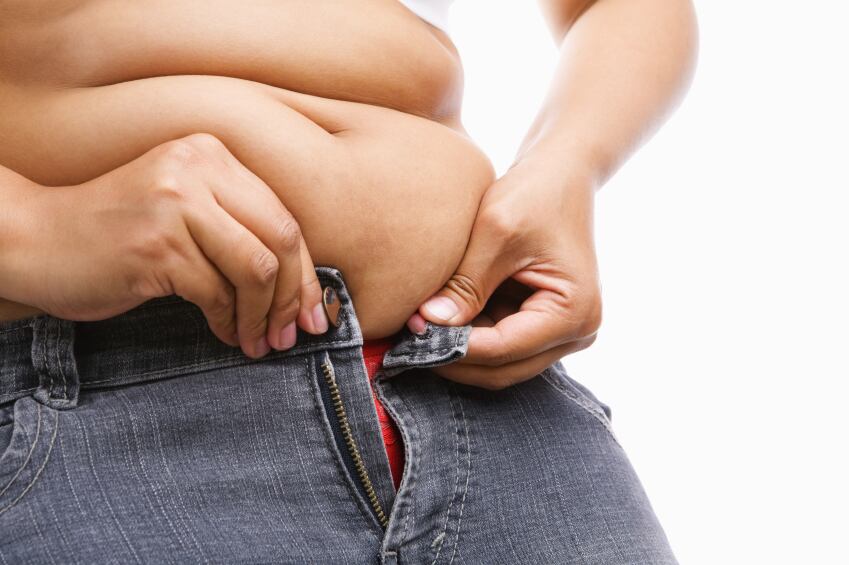Scientists from Virginia Tech report that supplementing a high fat diet with the probiotic milk shake resulted in lower body mass and fat accumulation than a placebo milk shake.
On the other hand, the probiotic combination, called VSL#3, did not affect levels of pro-inflammatory cytokines, measures of insulin sensitivity, or endotoxin concentrations, reported the researchers in Obesity.
“Our findings are consistent with prior observations that rodents fed VSL#3 and other single strain probiotic supplements gained less body mass and fat mass during high-fat feeding compared to controls,” they wrote. “Our findings are also consistent with recent observations that young, healthy subjects consuming a single probiotic strain (Lactobacillis casei Shirota) gained less body and fat mass during a high-fat diet compared with placebo.”
The study was funded by VSL Pharmaceuticals, Inc.
Gut health and obesity
The study adds to emerging body of science supporting the effects of gut microflora on metabolic factors and obesity.
A 2005 study by Jeffrey Gordon and his group at Washington University in St. Louis indicated that obese mice had lower levels of Bacteroidetes and higher levels of Firmicutes, compared with lean mice.
One year later and Dr Gordon’s reported similar findings in humans: The microbial populations in the gut are different between obese and lean people, and that when the obese people lost weight their microflora reverted back to that observed in a lean person, suggesting that obesity may have a microbial component (Nature, Vol. 444, pp. 1022-1023, 1027-1031).
A more recent paper from the same group in Science Translational Medicine (Vol. 3, 106ra106) reported that ingestion of probiotic bacteria produced a change in many metabolic pathways, particularly those related to carbohydrate metabolism.
The new Virginia Tech study did not investigate the potential mechanism of action, but the researchers noted that rapid changes to the gut microbiota may affect nutrient absorption, and that probiotic supplementation may reduce the amount of energy harvested from ingested food, which could lead to lower body and fat mass gain.
Other possible mechanisms include a reduction in lipid absorption in the gut, or by increasing energy expenditure via different pathways like GLP-1 secretion.

Study details
The researchers, led by Dr Matthew Hulver, head of the Department Human Nutrition, Foods, and Exercise at Virginia Tech, recruited 20 non-obese young men aged between 18 and 30 to participate in their study. The men were first assigned to consume a calorie-balanced control for two weeks, and were then randomly assigned to receive a high fat diet with or without VSL#3 in a milk shake for four weeks.
The strains of bacteria contained in VSL#3 were Streptococcus thermophilus DSM24731, Lactobacillus acidophilus DSM24735, L. delbrueckii ssp. bulgaricus DSM24734, L. paracasei DSM24733, L. plantarum DSM24730, Bifidobacterium longum DSM24736, B. infantis DSM24737, and B. breve DSM24732.
Results showed that the high fat diet produced average increases in body mass and fat mass of 2.3 kg and 1.3 kg over four weeks, but these values were significantly reduced in the probiotic group with average increases of 1.4 kg and 0.6 kg, respectively.
“The major finding from the present study is that supplementation with the probiotic VSL#3 provides some protection from body and fat mass gain with a high-fat diet in healthy, young males,” wrote Dr Hulver and his co-workers.
What next?
Future studies will be necessary to elucidate the mechanism(s) responsible for the potential weight management potential of the probiotic combination, said the researchers.
“Future studies are needed to determine the amount and type of dietary fat as well as the duration of high-fat diets on insulin sensitivity and in vitro skeletal muscle metabolism. Future interventions may need to target skeletal muscle metabolism in the fasting-fed transition rather than in the fasting state in isolation,” they concluded.
Source: Obesity
December 2015, Volume 23, Issue 12, pages 2364–2370, doi: 10.1002/oby.21230
“Probiotic supplementation attenuates increases in body mass and fat mass during high-fat diet in healthy young adults”
Authors: K.L. Osterberg, et al.
